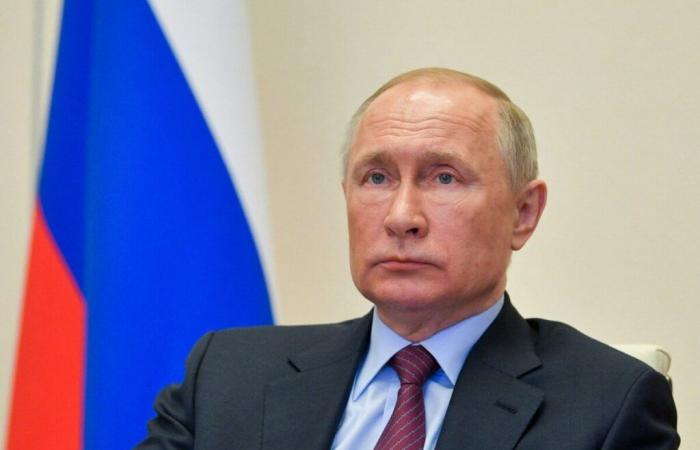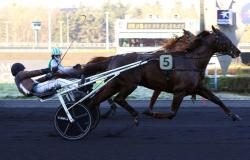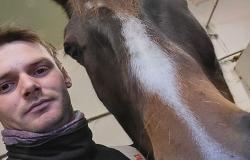A biography of Vladimir Putin by Jean-Robert Raviot to understand a complex man, who has marked the history of Russia and the world for 25 years.
Jean-Robert Raviot, Vladimir Putin and Russia. Political biography of a monarch in the 21st centurye century. Analysis of Russian issues, Vincennes, Frémeaux and associates, 2025, 142p, €20.
In this work, Jean-Robert Raviot, political scientist and specialist in the political history of post-Soviet Russia, strives to create a biography of the man who has led the largest country on the planet for a quarter of a century, Vladimir Putin. . In the three chapters that make up his book, Jean-Robert Raviot looks back on Putin’s journey until his accession to the presidency in 2000, then focuses on the evolution of his positions and his image during his four mandates. which he has already completed. In the context of the Russo-Ukrainian war which was able to highlight a growing opposition between the West and a “world majority” (p.108) composed in particular of the BRICS+ and bringing together more than half of the world population, the analysis of the evolution of the Russian president’s speeches and actions since the 2000s, often omitted in public debate, proves essential.
The difficulty of the subject
From the introduction to the work, Jean-Robert Raviot emphasizes the difficulty of the exercise: it is very difficult to remain “ objective, distanced, and even less exhaustive » (p.21) in the writing of a biography of Vladimir Putin, around which established facts, constructed stories, rumors and other legends revolve, sometimes conveyed in official documents and in the autobiography that he published in 2000. Drawing on these official sources, as well as various works devoted to the Russian political system and the life of Vladimir Putin, sometimes critical, sometimes praising, Jean-Robert Raviot offers a lively and punctuated with quotations, despite a few typos and redundancies.
In the first chapter, Jean-Robert Raviot addresses the first forty-eight years of the future head of the Russian state, born in 1952 in a Leningrad marked by the memory of the Great Patriotic War and its murderous blockade. Mentioning the legends contradicting or embellishing the official biography of Putin, Jean-Robert Raviot returns to the image of a “school kid” (dvorovy maltchik) who would have found self-discipline in the practice of judo, now a central component of his image. After studying law, Putin joined the KGB in 1975 and was sent to the Democratic Republic of Germany between 1985 and 1989, where he witnessed the first signs of the collapse of the Soviet Union and the Eastern bloc. In this chapter, Jean-Robert Raviot focuses on the entourage of the future president, first met on the tatamis, with Anatoli Rakhline and Arkadi Rotenberg, major players in the sportsocracy (Aubin, 2020). On his return to Russia, he became closer to Anatoly Sobchak, future mayor of Saint Petersburg and ally of Boris Yeltsin. In Russia in the 1990s, the new “Time of Troubles” (p.114), Vladimir Putin gradually integrated the governing bodies while forging relationships among the “Petersburg clan” and Yeltsin’s “Family”, until to become head of the FSB, successor to the KGB, in 1998.
A Man by Boris Elstine
In the midst of an economic and political crisis, Vladimir Putin became Prime Minister in 1999, then president in 2000, in what is sometimes presented as a combination of circumstances. In the second chapter of his work, Jean-Robert Raviot analyzes how Putin managed to get Russia out of ten years of chaos. For the first time since 1991, the president has a parliamentary majority, thanks to the founding of the party in 1999 Unitwho won the legislative elections and united in 2001 with other parties to found United Russia. Putin, who presents himself as a man of action, is gradually sidelining the oligarchs and members of the “Family”, remnants of the Yeltsinian period, while carrying out fiscal, administrative and legal reforms, in order to “restore the vertical of power” and “establish the dictatorship of the law”. For Jean-Robert Raviot, this is the beginning of Putinism, an administered democracy characterized by the strengthening and recentralization of the Russian state in order to once again make it a great world power, which proves to be one of the pillars of Vladimir Putin’s popularity in Russia. However, administered democracy is gradually transforming into “ authoritarian and plebiscite system » (p.87), while Putin is running for president in 2012 after Dimitri Medvedev became president, and an opposition movement led by Alexeï Navalny is rising.
Putin and his legends
The third chapter is an attempt to write the “mythography” (p.95) of Vladimir Putin by describing his legends – in a double meaning both current and from the world of espionage and by describing the dynamics which led to the authoritarian and anti-Western turn of the Russian leader and his policies.
The beginnings of this turning point appeared in 2007-2008, with the Munich speech then the NATO summit, where Putin denounced a unipolar world centered around the United States and NATO, which then extended into Europe from the East, at the gates of the former Soviet republics. While Putin’s first two mandates were marked by a policy oriented towards Europe, his return to power in 2012 marked an anti-American and anti-Western turning point that Jean-Robert Raviot describes not as nationalist and Eurasianist, but as a desire to return to traditional European values that progressive Europe would have abandoned. In this context, Russia’s rapprochement with China and the other countries of the BRICS and then BRICS+ group is not so much an alliance as a partnership intended to promote the emergence of a new world order in which the West and his ideas turn out to be in the minority. This chapter combines political analysis and analysis of images and legends revolving around the personality of Vladimir Putin, now sometimes “Hitlerized” (p.109-112) in Western discourse. Jean-Robert Raviot questions his image, his relationship to money, his private life and his entourage, evoking his ex-wife, his daughters, or even the late Evgueni Prigojine who embodies another part of the authoritarian turn of Putinism, that assassinations of his opponents, beginning with that of Boris Nemtsov in 2015.
What is Putinism?
As a common thread in this work, built on a chronological model, we encounter a certain number of questions about the nature of the Russian regime. Is Putinism the end of democracy in Russia? Is the Putin regime tyrannical and absolute? Does Vladimir Putin govern as a monarch, and to which tsar can he be compared? On what springs does the image of the Russian president rest? What is the immortality of the “two bodies of the King” (Kantorowicz, 1957), namely the image of Putin and Putinism itself? By answering these questions, Jean-Robert Raviot describes the dynamics that led Vladimir Putin to the presidency, to remain there, and to bring Russia into a “new Cold War” against the West (Raviot, 2016) .
The aim of the work, displayed in its subtitle, is as much to present the biography of one of the most famous politicians on the planet, as to analyze the speech and actions which led to the geopolitical situation that we know, while emphasizing the shadows and legend surrounding the Russian president and his decisions, as well as the different interpretations of the same facts in Russia and abroad. However, a few points would have deserved their place in this work, such as the question of Kosovo, which has come up numerous times in Vladimir Putin’s speech since 2008 to justify support for the separatist republics of Georgia (Abkhazia, South Ossetia). and Ukraine (Donetsk, Lugansk). Another theme, which Jean-Robert Raviot admits would deserve a much more in-depth study, is that of the iconography of Vladimir Putin, today both used by the Russian regime and misused on social networks thanks to memesa new digital mode of expression. The analysis offered by Jean-Robert Raviot nonetheless remains comprehensive and allows us to identify a personality that we often forget to contextualize.






